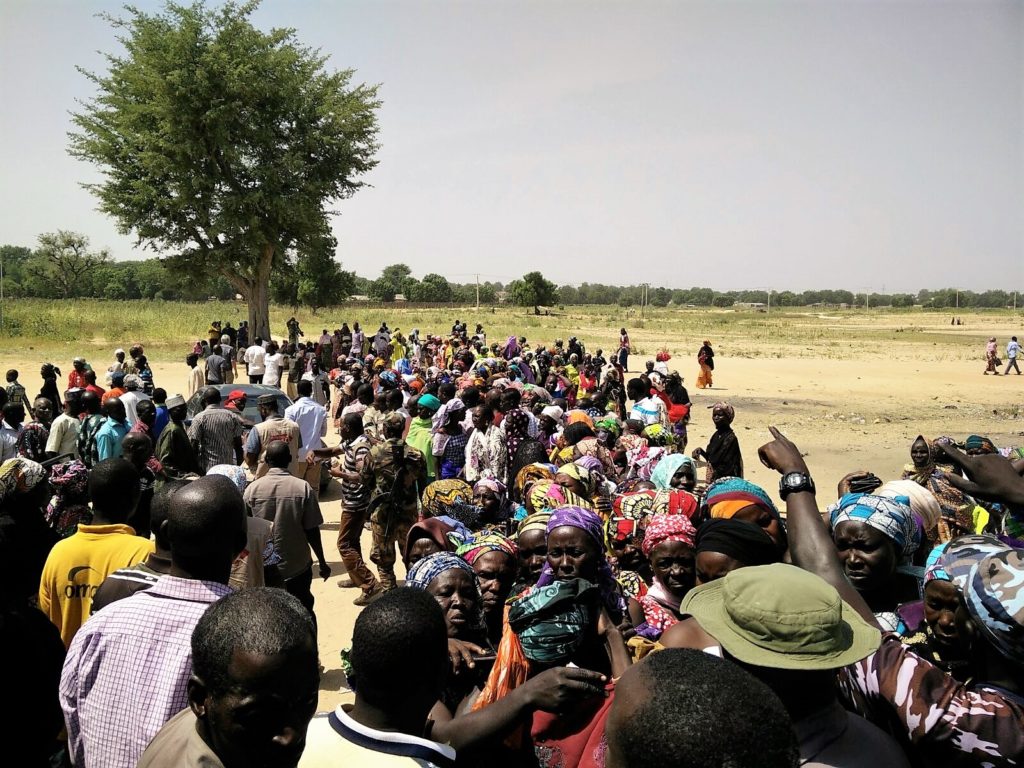
Despite the good news of 82 freed ‘Chibok girls’, 14 million are in need of aid in north-east Nigeria, the centre of the Boko Haram insurgency. Of the 14 million, more than half are “severely food insecure”. The UN describes the unfolding disaster in the region as the “greatest crisis on the continent” – the full extent of which is only revealed as the extremist militant group is pushed back.
Thousands live in famine-like conditions in urgent need of help: the UN estimated in December that 75,000 children were at risk of starving to death. Some fear starvation will cause more deaths than the 20,000 killed by the extremist militants. 2.5 million have been displaced in Nigeria and in neighbouring Niger, Cameroon and Chad.
Now a court in Nigeria’s NE town of Maiduguri (Borno State) has sentenced two officials to two years in prison for selling food aid meant for people fleeing the Islamist militant attacks and the food shortages in the region, Reuters reports.
Umar Ibrahim, a counsellor for agriculture, and Bulama Ali Zangebe, a member of a camp feeding committee, sold 300 bags of rice, donated by the Norwegian Refugee Agency, for 8,500 naira ($27, £21) each.
Though the two are the first to be convicted, accusations over the mismanagement of relief aid destined for IDPs in areas affected by Boko Haram are not new.
Father Maurice Kweirang, in charge of St. Theresa Church’s IDP camp in Yola, capital of Nigeria’s north-east Adamawa State, told World Watch Monitor last summer that the current humanitarian crisis is a result of a deliberate act of mismanagement by officials.
“Foods and other non-food items destined for IDPs have been diverted. They are selling them in an open market in Maiduguri [Borno’s main city] and elsewhere,” he told World Watch Monitor.
Source: Reuters